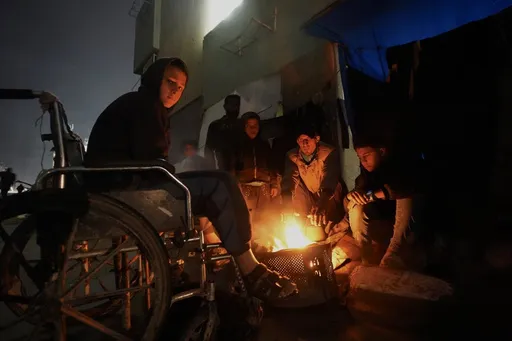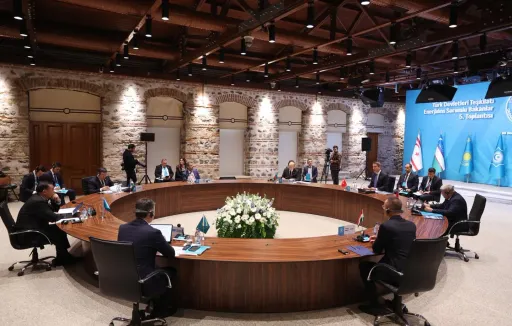By MazhunIdris
On a Saturday afternoon, 14-year old Salmanu Sani Salihu sits on his folded legs inside a small booth - his workstation. With a brown yarn and a tiny needle, he skilfully weaves into a lilac coloured fabric.
Salmanu is knitting the thick fibres of embroidery yarn over a penciled pattern on the placket of a semi-sewn male tunic, producing beautiful coils and interlacing patterns.
Seated directly facing him is his older brother, the hand-embroidery trainer, Nuhu Sani Salihu. The 35-year-old owns the embroidery shop that is at the heart of the famous Zaria Market in northern Nigeria's Kaduna state. They make various Hausa traditional attires.
“Because this is weekend, we come to work before noon, and we will close at four in the evening,” Salmanu, tells TRT Afrika as he and other trainees focus on their needle-and-thread task.
Combined with schooling
Salmanu started learning the hand embroidery four years ago. This afternoon, he works with his two other siblings Abdulkadir and Jabir both as well as two other teenage apprentices - Abdullahi and Abdulkarim.
Through years of learning hand embroidery, children grow up to become professional fashion designers.
Like many children in northern Nigeria, Salmanu combines vocational training with pursuing formal education a practice that reduces the risk of being without a job after school.
He attends Barewa College, a secondary school established in 1921, which produced the country’s first Prime Minister Abubakar Tafawa Balewa and several other heads of state in Africa's most populous nation.
Salmanu is already advanced in his embroidery training - sometimes working alone - which gives him an opportunity to earn some income. This is the case with some of his colleagues as well.
“I enjoy learning this craft, and with the little money I get at the end of each day's work, I settle part of my school expenses, and even help my family,” Abdullahi Isyaku another trainee tells TRT Afrika.
“I bought the fabric of my clothes and I did the embroidery myself,” Abdullahi says, pointing to the cloth he is wearing.
On weekdays, when school closes around 1pm, the children head home for a brief lunch break and then go to the embroidery training shop where they work until 4pm when they attend evening madrassa - an Islamic school.
“My father brought me here to learn the embroidery craft, instead of playing on the streets,” Abdullahi explains.
The Hausa people have a millennium-old fabric weaving and fashion design industry, signatured by the traditional kaftans and the flowing robe called ‘babbar riga’, famous across West and Central Africa.
In the Hausa culture, these hand-embroidered attires are mostly popular with men, but there are certain dress designs common with women as well. Just like the attires, the craft is passed from generation to generation.
Although machine embroidery has, in recent years, taken part of the market as some designers use computer generated geometry to design intricate motifs, hand-embroidered attires are still popular with all ages and classes of the society including royals and politicians.
Both hand-embroidered and machine-embroidered garments are sold locally and also exported mostly to the African diaspora in Europe and Asia.
Like others in the fashion industry, hand-embroiderers experience extraordinary business boom during seasonal festivities such as Muslim celebrations of Eid as demand for new attires increase.
Children like Salmanu and Abdullahi believe the craft will prepare them well for the future in addition to the formal and religious education they acquire.
























